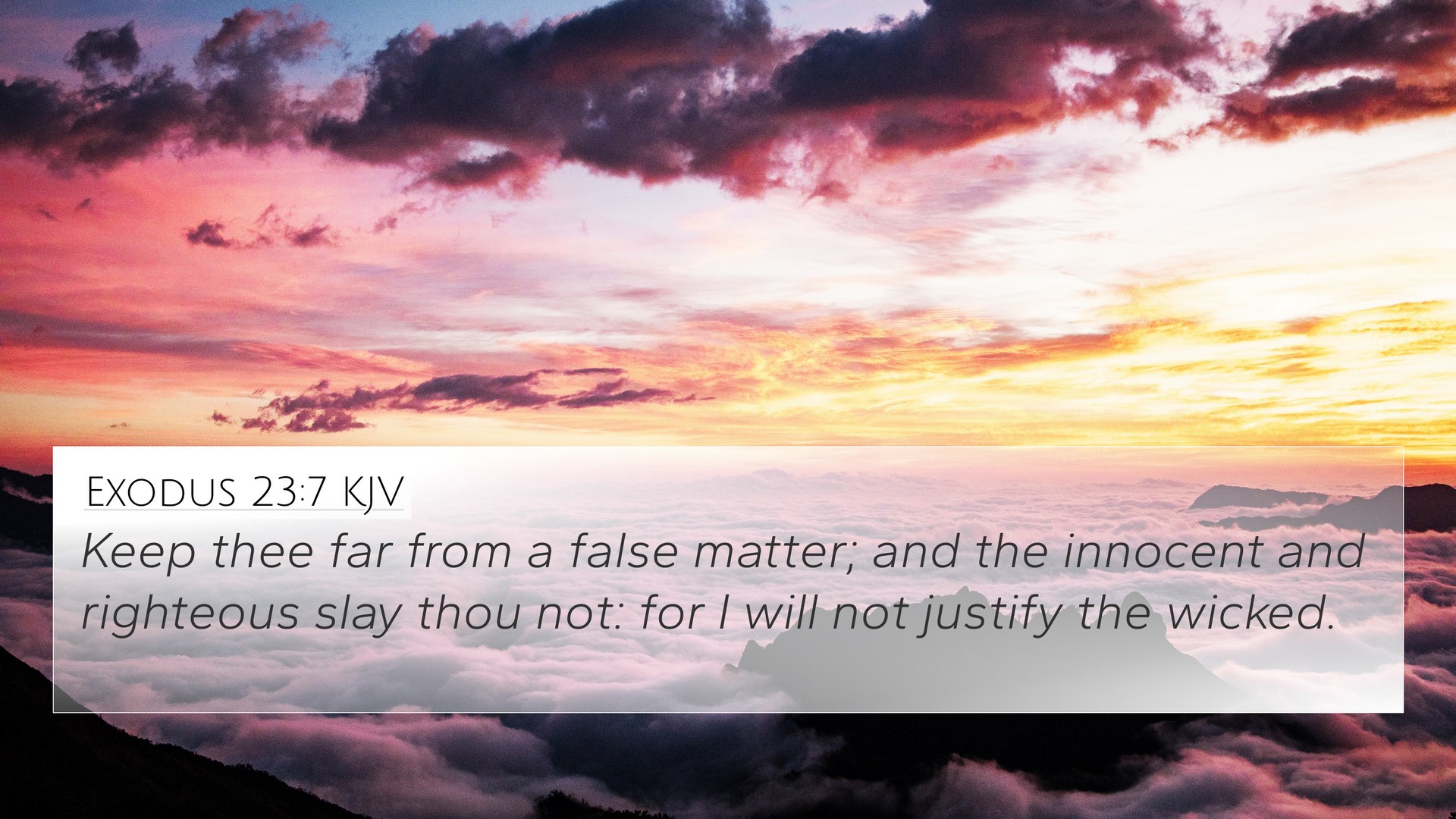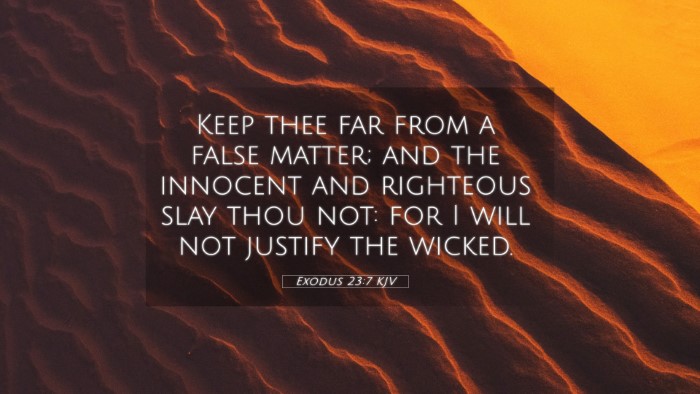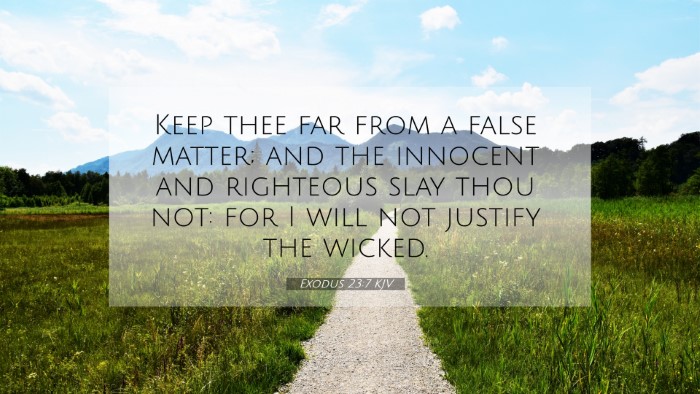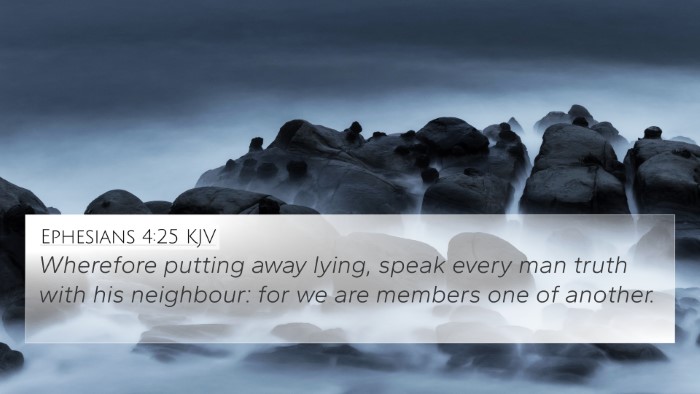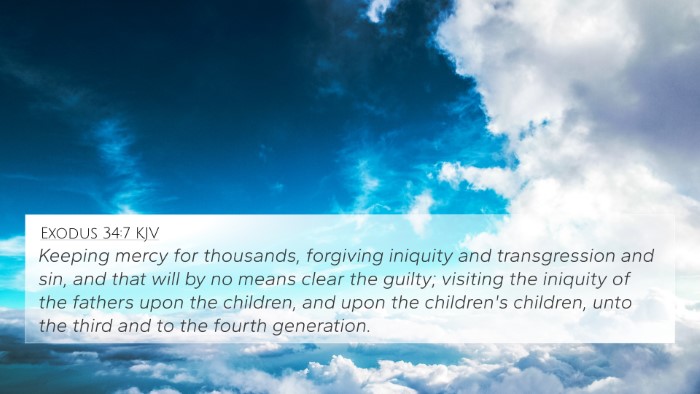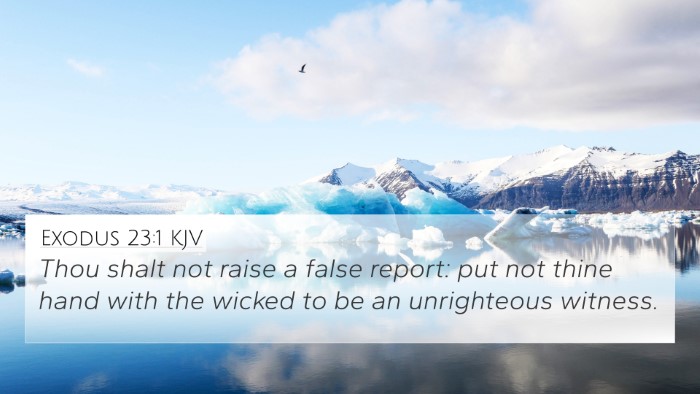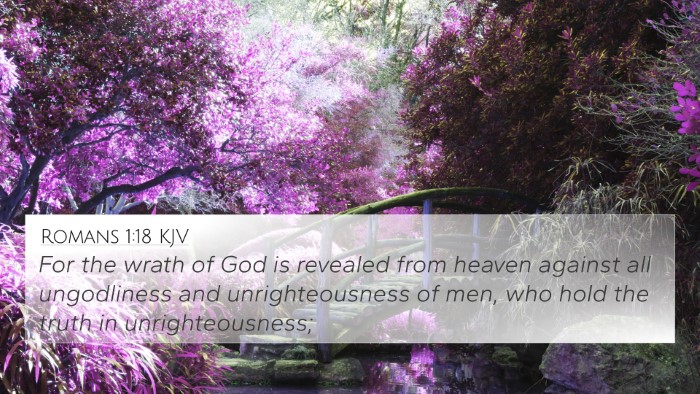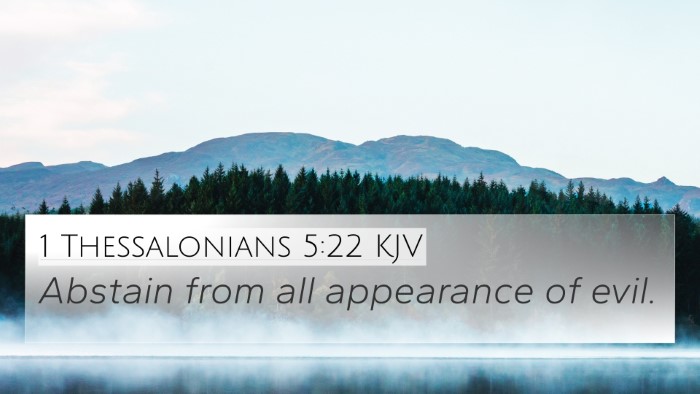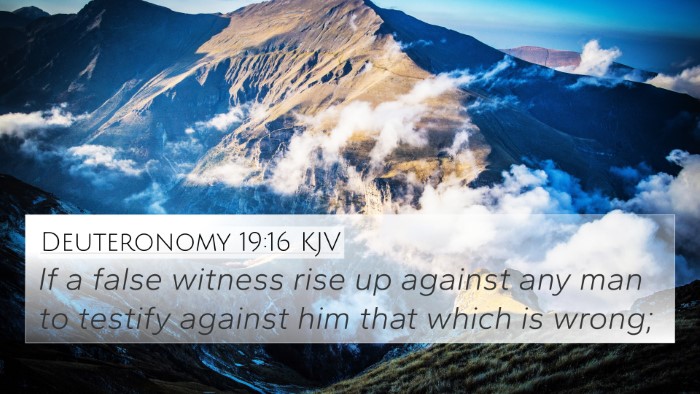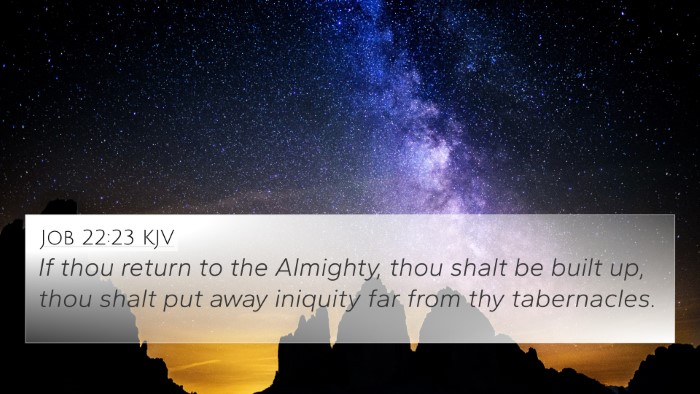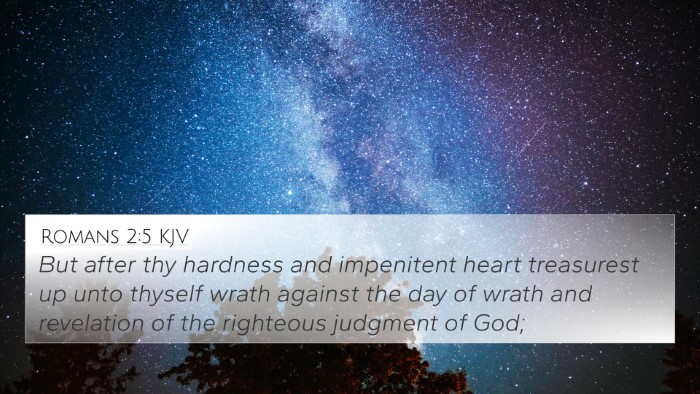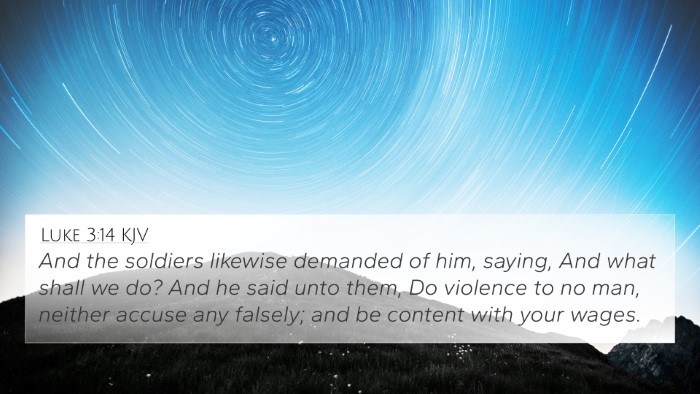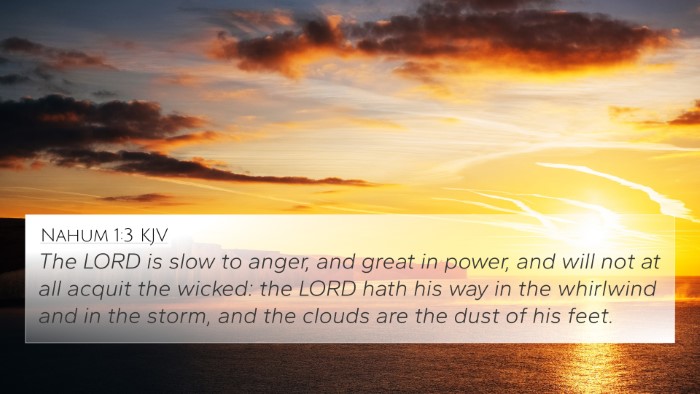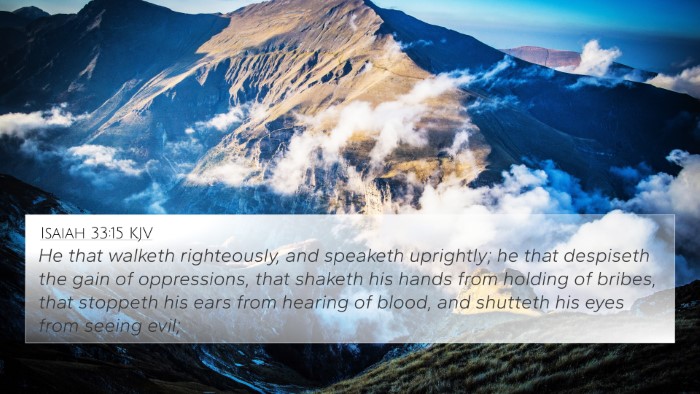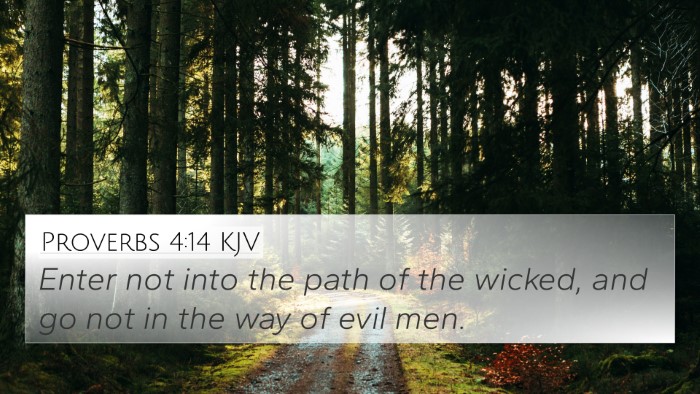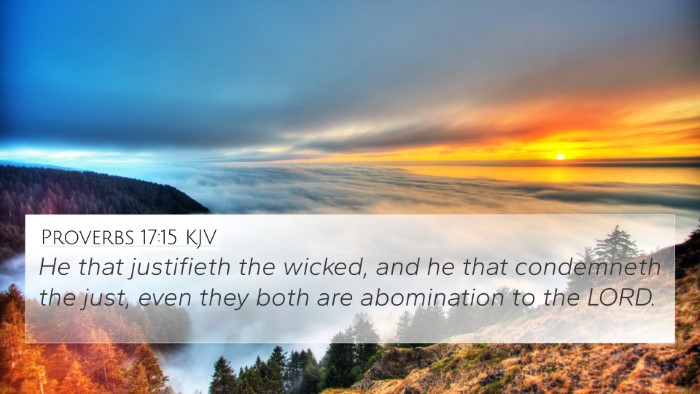Understanding Exodus 23:7
Bible Verse: Exodus 23:7 - "Keep thee far from a false matter; and the innocent and righteous slay thou not: for I will not justify the wicked."
Summary and Interpretation
This verse serves as a crucial directive regarding justice and integrity in dealings with others. It highlights the importance of avoiding falsehoods and the serious consequences of harming the innocent. The verse is not just a commandment but encapsulates a deeper moral principle that echoes throughout the Scriptures.
Insights from Public Domain Commentaries
Various biblical scholars such as Matthew Henry, Albert Barnes, and Adam Clarke provide rich insights into the meaning of Exodus 23:7.
Matthew Henry’s Commentary
Matthew Henry emphasizes that this verse calls for a distance from falsehoods, which serve to corrupt justice. He notes that this command is not merely for legal contexts but also applies to personal relationships and social encounters. The essence of maintaining honesty and seeking righteousness is central to this teaching, ensuring that justice is served in a fair and equitable manner.
Albert Barnes’ Notes
Albert Barnes interprets this verse as a warning against bearing false witness and upholding the righteousness of innocent individuals. He suggests that the intent behind the law is to protect those who are vulnerable and to uphold a just society. Barnes connects this teaching with the moral foundations laid out in the Ten Commandments, particularly relating to justice and truth.
Adam Clarke’s Commentary
Adam Clarke enlightens readers on the nature of divine justice and the moral fabric that sustains community relations. He highlights that this scripture encourages followers to be discerning and to make a distinction between truth and falsehood, as well as between innocence and guilt. Clarke conveys a warning that God will not justify those who unjustly persecute the innocent, emphasizing the divine oversight in moral affairs.
Cross-Reference Insights
Exodus 23:7 is intricately connected with various other biblical texts that enhance its meaning. Here are some notable cross-references:
- Deuteronomy 16:19: "Thou shalt not wrest judgment; thou shalt not respect persons, neither take a gift; for a gift doth blind the eyes of the wise, and pervert the words of the righteous."
- Proverbs 6:16-19: Highlights the things the Lord hates, including false witnesses and those who sow discord.
- Psalm 7:8: "The Lord shall judge the people: judge me, O Lord, according to my righteousness, and according to mine integrity that is in me."
- Isaiah 5:20: "Woe unto them that call evil good, and good evil; that put darkness for light, and light for darkness; that put bitter for sweet, and sweet for bitter!"
- James 1:27: "Pure religion and undefiled before God and the Father is this, To visit the fatherless and widows in their affliction, and to keep himself unspotted from the world."
- Matthew 5:6: "Blessed are they which do hunger and thirst after righteousness: for they shall be filled."
- Acts 10:34-35: "Then Peter opened his mouth, and said, Of a truth I perceive that God is no respecter of persons: But in every nation he that feareth him, and worketh righteousness, is accepted with him."
Thematic Connections
Understanding Exodus 23:7 amidst its thematic connections enhances our grasp of its divine and moral significance:
- Justice: A recurring theme in both the Old and New Testaments.
- Truthfulness: The importance of honesty in personal and community life.
- Divine Oversight: God's role in ensuring justice and righteousness is maintained.
- Protection of the Innocent: Emphasizing care and responsibility towards the vulnerable.
- Moral Integrity: Upholding personal and communal integrity as foundational to faith.
Connecting with Other Scriptures
Through cross-referencing, we unveil deeper insights and connections between various Bible verses. For example:
- Links between the Prophets and Apostolic teachings: Many New Testament writings echo the call for justice rooted in the teachings of the Old Testament prophets.
- Comparative study of Pauline epistles: Paul's letters often discuss themes of righteousness, making connections between freedom from sin and living a life that upholds truth.
- Inter-Biblical dialogue: The consistency of God's call for justice and truth across different books of the Bible showcases a unified moral framework.
Conclusion
Exodus 23:7 serves as a timeless reminder of the importance of truth, justice, and the protection of the innocent. By engaging with this verse and exploring its connections through cross-referencing, believers can gain a fuller understanding of God’s requirements for equity and righteousness in their lives.
